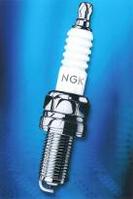Fuel economy, every way you can
 These days, you have to be a very rich motorist not to worry about the cost of fuel. Recent events have made it very expensive, and it would be foolish to assume it will ever again become much cheaper. The challenge is to use less of it.
These days, you have to be a very rich motorist not to worry about the cost of fuel. Recent events have made it very expensive, and it would be foolish to assume it will ever again become much cheaper. The challenge is to use less of it.Some possibilities are obvious but perhaps not very appealing. You could buy a smaller car. You could drive more slowly. Switch off the engine if you are standing at a red light. But worthwhile savings are also to be had without altering your entire driving lifestyle, beyond thinking more carefully and paying attention to detail.
Economy driving, for example: car fleet managers know that some drivers use less fuel than others, while maintaining the same schedules. The secret, as the most skilled drivers will tell you, is to think ahead and to maintain enough space around you that you can always be smooth and gentle with your car. Heavy acceleration is the enemy of fuel economy, but heavy braking is even more so. Standing on the brakes is like opening a tap to trickle fuel onto the road. All that energy wasted. So don’t just look at the car in front. Study the situation and try to anticipate.
Then again, is your car fully fit? So many drivers complain about the cost of fuel while running low tyre pressures which mean each litre is taking them 5% less far than it should. Just as much to the point, when was your engine last checked over? These days, with long service intervals and generally good reliability, drivers tend to take things for granted. Yet it is possible for an engine to be running smoothly and delivering good performance, and still be using 5% more fuel than necessary.
The reason the engine continues smoothly is because today’s engines are managed by extremely clever computers. If, for example, the spark plugs are worn (and a great deal is demanded of modern spark plugs) then the quality of ignition may be affected. To compensate, the engine management computer may retard the ignition timing - and although the driver feels nothing, the fuel consumption will be slightly increased. Today’s car manufacturers insist on spark plugs which perform satisfactorily perhaps for 12,000 miles or even more. And they do; but by the time they reach 12,000 miles (and how many drivers put off the service for as long as they dare?) they have lost the “fine edge” of super-efficiency which new plugs provide. Drivers whose engines last a very long time often say their secret is to change the engine oil more often than the car manufacturer recommends. Much the same applies to spark plugs.
And engine economy is dependent upon not only fitting just a new plug but also fitting precisely the correct plug for that engine from a Company such as NGK Spark Plugs, brand leaders in the UK spark plug market.
Even more complicated is the effect which errors in the exhaust emission control system may have on fuel economy. Emission control in a modern petrol engine depends on signals being fed back from an extremely sophisticated sensor (the oxygen content or “lambda” sensor) sitting in the stream of hot exhaust gas. Lambda sensors are tough and long-lasting - they have to be. But they also become tired, and their signal may “drift”.
The engine management computer still accepts the signal, but the end result is that fuel consumption increases slightly (and so do exhaust emissions). It is possible to have the lambda sensor(s) replaced, and in older cars it may not only save fuel but also make it less likely the car will fail an emissions check. It may even, in some cases, avoid the need for an extremely expensive replacement catalytic converter.
When replacing the Lambda sensor it is very important to fit the correct Original Equipment specification sensor from a Company such as NGK, the world’s largest manufacturer of Lambda sensors.
It may seem a lot of trouble to have your engine checked, and parts replaced if necessary, every 6,000 miles if the handbook says 12,000 miles and your engine seems still to be running fine. But you could end up using less fuel - and indeed, taking better care of the environment we all share.

